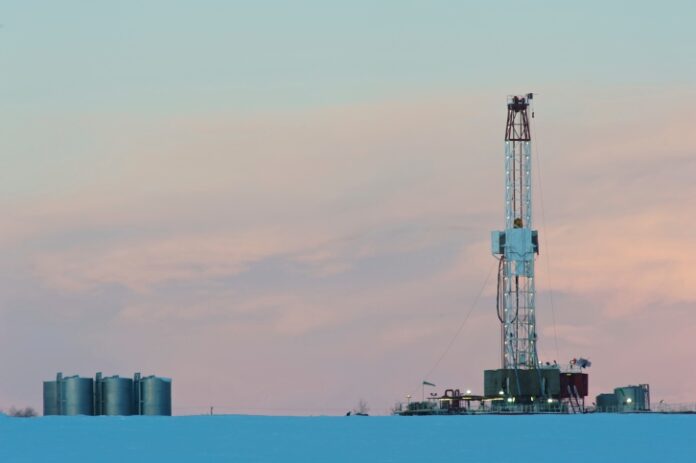A report from the U.S. Department of Energy’s (DOE) Office of Fossil Energy says a ban on hydraulic fracturing (“fracking”) would cost millions of jobs, result in trillions of in lost gross domestic product (GDP) and labor income, dramatically increase gasoline prices and electricity bills, and increase emissions of carbon dioxide and various pollutants.
The report, “Economic and Natural Security Impacts Under a Hydraulic Fracturing Ban,” delivered in the waning days of the Trump Administration, notes a ban would “reverse United States oil and natural gas production growth and return the country to a net-importer of oil and natural gas by 2025.
“With declining domestic production, the analysis suggests natural gas price implications under a hydraulic fracturing ban would be considerable, with an estimated 244 percent increase from the 2019 level, reaching $8.80 per million British Thermal Units…by 2025,” says the report. “These price hikes would have a crippling economic effect through increased household energy bills, higher fuel costs for industrial and commercial customers, higher and more frequent electricity price spikes, and deteriorating competitiveness of the United States energy supply in the global market.”
Ban Carries High Costs
By 2025, the report estimates a fracking ban will result in a loss of 7.7 million jobs, a $1.1 trillion loss in GDP, and $950 billion less in labor income.
Average gasoline prices would more than double between 2022 and 2023 to $4.20 per gallon, according to DOE’s analysis, while diesel fuel prices would increase 95 percent to $4.56 per gallon. Overall, Americans would pay an additional $1.19 trillion in petroleum costs through 2025.
Further, the report estimates, retail electricity costs under a ban would increase by $480 billion through 2025, in part because retail natural gas costs would jump by more than $400 billion over the same period.
“Hydraulic fracturing tapped the great reservoir of America’s natural resources,” said Steven Winberg, assistant secretary for Fossil Energy in a press release accompanying the report. “That technology made the United States the world’s largest oil and natural gas producer, while also creating high-paying jobs and delivering great consumer savings.
“This report to the President details just how devastating the economic and national security impacts of a ban would be,” said Winberg. “Banning this technology would derail our recovery from recent COVID-related economic disruptions and increase the risk of another recession.”
Ban Increases Emissions, Decreases Security
Beyond the economic impacts, the report warns a fracking ban would, in its first year alone, result in an increase in carbon dioxide emissions of 16 percent, of nitrogen oxides by 17 percent, and of sulfur dioxide by 62 percent.
“Taking away hydraulic fracturing technology from America’s oil and natural gas industry removes the primary technique needed to efficiently and responsibly extract abundant U.S. energy resources,” said Shawn Bennett, deputy assistant secretary for Oil and Natural Gas, DOE’s press release. “Without new wells brought online, U.S. natural gas and oil production would rapidly fall, reversing the past decade’s energy security gains.”
The DOE report also warns banning fracking would result in significant, negative geopolitical and national security effects for the United States.
“Significantly curtailing American natural gas and oil production removes an important tool for American diplomacy while increasing global energy dependence on Russia and the Organization of the Petroleum Exporting Countries (OPEC) nations,” the report states. “[Since] demand for reliable, affordable energy would remain, [and] America would again turn to the Middle East and Russia for imports.
“An important asset in diplomacy would be sidelined and allies across the globe – from Southeast Asia to Europe and South America – would be cut off from a valuable, trusted energy trading partner,” the report says.
Tim Benson (tbenson@heartland.org) is a policy analyst at The Heartland Institute.
Internet Info
“Economic and Natural Security Impacts Under a Hydraulic Fracturing Ban,” The United States Department of Energy, January 14, 2021: https://www.heartland.org/publications-resources/publications/economic-and-national-security-impacts-under-a-hydraulic-fracturing-ban


























